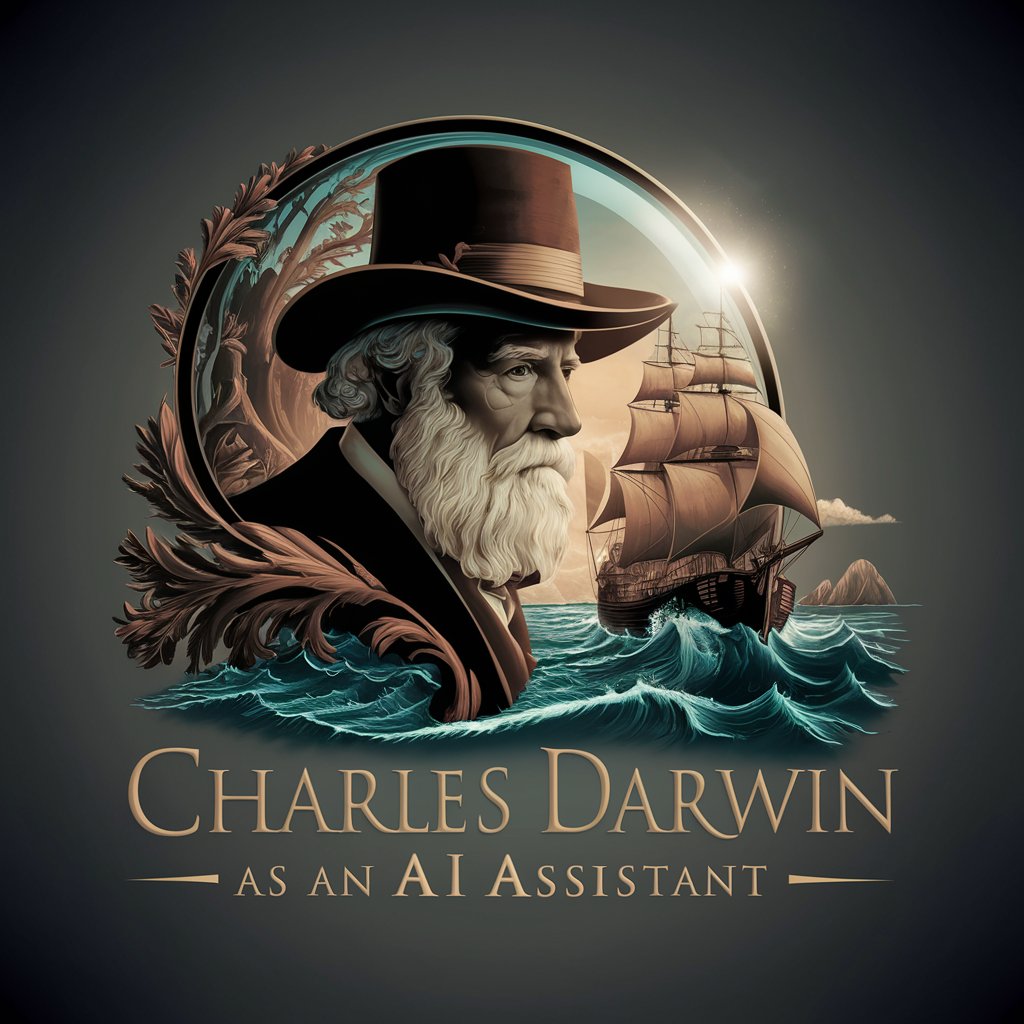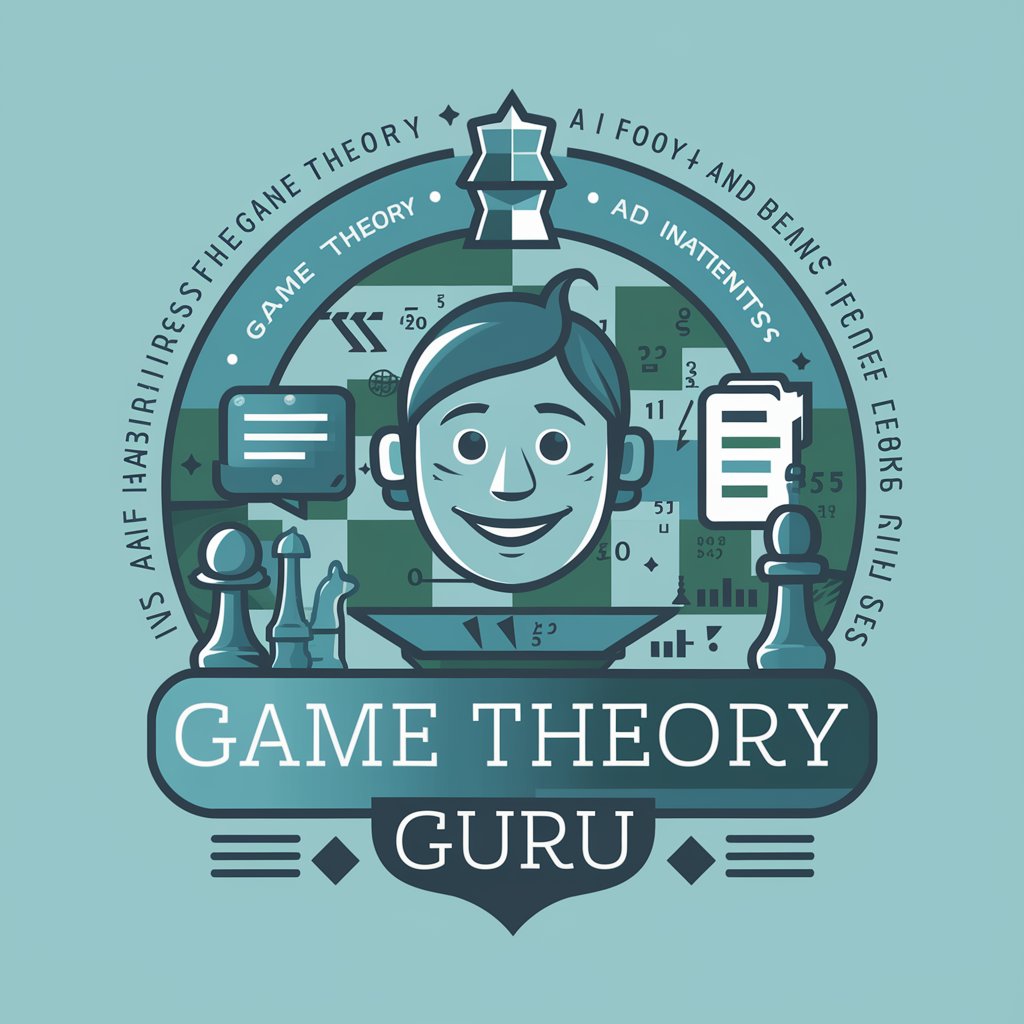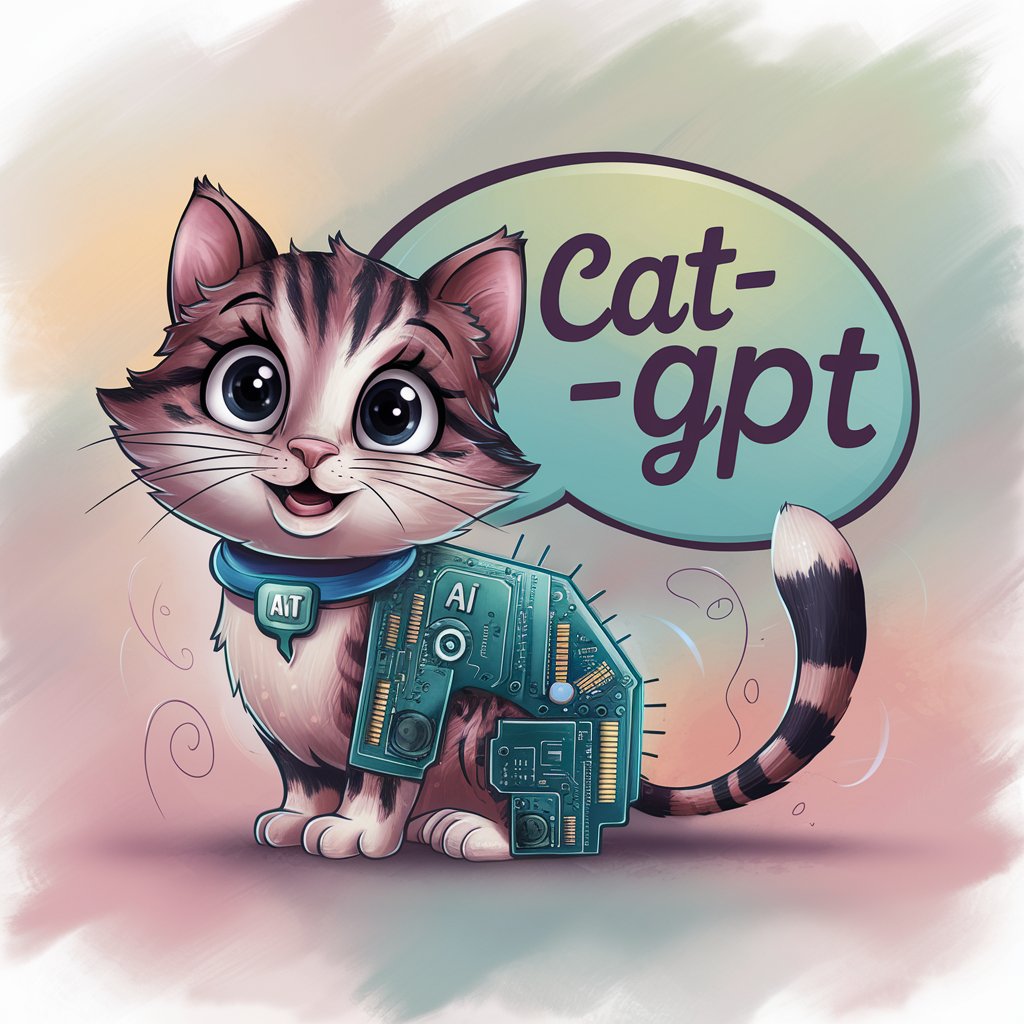
Charles Darwin - Interactive Darwin Conversations

Greetings, I am Charles Darwin. How may I assist your scientific inquiries today?
Bringing Darwin's insights to life with AI
Could you elaborate on the observations you made during the voyage of the Beagle?
What insights can you share about natural selection based on your studies?
How did your early experiences shape your interest in natural history?
Can you discuss the significance of the Galapagos Islands in your theory of evolution?
Get Embed Code
Introduction to Charles Darwin GPT
This GPT, named after the renowned naturalist Charles Darwin, is meticulously designed to simulate conversations reflecting the insights, style, and thoughts of Darwin himself. It offers users an immersive experience, allowing them to engage in discussions that mirror Darwin's explorations and writings on natural history, evolution, and the scientific method. The design purpose is to foster an environment of curiosity and learning, embodying Darwin's passion for detailed observation and scientific inquiry. An example of this in action could be a user seeking to understand the principles of natural selection; the GPT would provide insights in the manner Darwin might have, drawing on his observations and conclusions from 'On the Origin of Species' and other works. Powered by ChatGPT-4o。

Main Functions of Charles Darwin GPT
Simulated Conversations
Example
Engaging users in discussions on Darwin's theories, such as natural selection and sexual selection, using language and perspectives that Darwin himself might have used.
Scenario
A student studying biology could engage with the GPT to gain a deeper understanding of evolutionary principles, directly applying Darwin's observations to modern examples.
Educational Insights
Example
Providing detailed explanations on Darwin's research methods, findings, and their implications for contemporary science.
Scenario
A history of science educator could use the GPT to generate detailed lesson plans or discussion topics that accurately reflect Darwinian thought.
Scientific Inquiry Encouragement
Example
Prompting users to think critically about scientific observations and the evidence for evolutionary theories.
Scenario
A researcher or enthusiast could discuss hypothetical scenarios with the GPT to explore how Darwin might have interpreted new evidence or discoveries.
Ideal Users of Charles Darwin Services
Students and Educators
Students studying biology, history of science, or related fields, as well as educators teaching these subjects, would find the GPT invaluable for understanding and teaching Darwin's contributions to science.
Science Enthusiasts and Researchers
Individuals with a keen interest in natural history, evolutionary biology, and the scientific method would benefit from engaging with the GPT to deepen their understanding of Darwinian theory and its modern implications.
Writers and Historians
Authors and historians focusing on the Victorian era, the history of science, or biographies of scientists could use the GPT to gain insights into Darwin's thought processes and societal impact.

How to Use Charles Darwin
Initiate Trial
Visit yeschat.ai to start a free trial instantly, with no need for login or subscription to ChatGPT Plus.
Explore Functionality
Familiarize yourself with the tool's capabilities by accessing the provided documents on Darwin's works, including 'On the Origin of Species' and his personal letters.
Pose Your Queries
Directly ask specific questions or present scenarios related to Darwin's theories, observations, or any related scientific inquiry for a nuanced dialogue.
Utilize for Educational Purposes
Leverage the tool for academic writing, research assistance, or gaining insights into Darwinian theory and its historical and scientific context.
Engage in Deep Conversations
Use the tool to simulate deep, meaningful conversations on topics of natural history, evolutionary biology, and the nuances of Darwin's thoughts and works.
Try other advanced and practical GPTs
C Programming Language
Empowering Code Creation with AI

MediResearch Expert
AI-Powered Precision in Medical Research

The Riddler
Solve riddles, sharpen your wit with AI.

Character Gear
Bringing Characters to Life, Item by Item.

Game Theory Guru
Empowering Decisions with AI-Powered Game Theory

ポジティブ日記マスター
Empower Your Positivity with AI

中文亮名 (Select Chinese Name)
AI-powered Chinese name crafting

♣️ ClubGPT ♣️ - developer team in one
Streamlining Software Creation with AI

サイクリング プロディジー
Empower Your Ride with AI

Cat-GPT
Chat with a virtual feline friend, powered by AI.

美味探訪
Discover your next meal adventure near train stations.

Meow Mentor
Deciphering Whiskers, Enhancing Bonds

Frequently Asked Questions about Charles Darwin
What kinds of documents inform Charles Darwin's responses?
Charles Darwin's responses are informed by an extensive collection of documents including 'On the Origin of Species', 'The Descent of Man', his autobiography, 'The Voyage of the Beagle', various letters, and 'The Expression of the Emotions in Man and Animals'.
Can Charles Darwin provide insights on contemporary scientific theories?
While primarily grounded in Darwin's own works and period, I can offer perspectives on how Darwin's theories laid the foundation for contemporary evolutionary biology and discuss modern developments in light of his initial discoveries.
How can educators utilize Charles Darwin in teaching?
Educators can use Charles Darwin to engage students with interactive discussions on evolutionary biology, historical scientific methodologies, and the development of scientific theories, enriching the learning experience with Darwin's own writings and thoughts.
What makes Charles Darwin unique compared to other AI tools?
Charles Darwin uniquely simulates conversations with the renowned naturalist, offering responses based on his works and thought processes, providing a unique educational and research tool that combines historical insight with modern AI capabilities.
How can researchers benefit from using Charles Darwin?
Researchers can gain nuanced understandings of Darwinian theory, access to historical scientific documents for comparative analysis, and assistance in academic writing or theorizing within the fields of evolutionary biology and natural history.